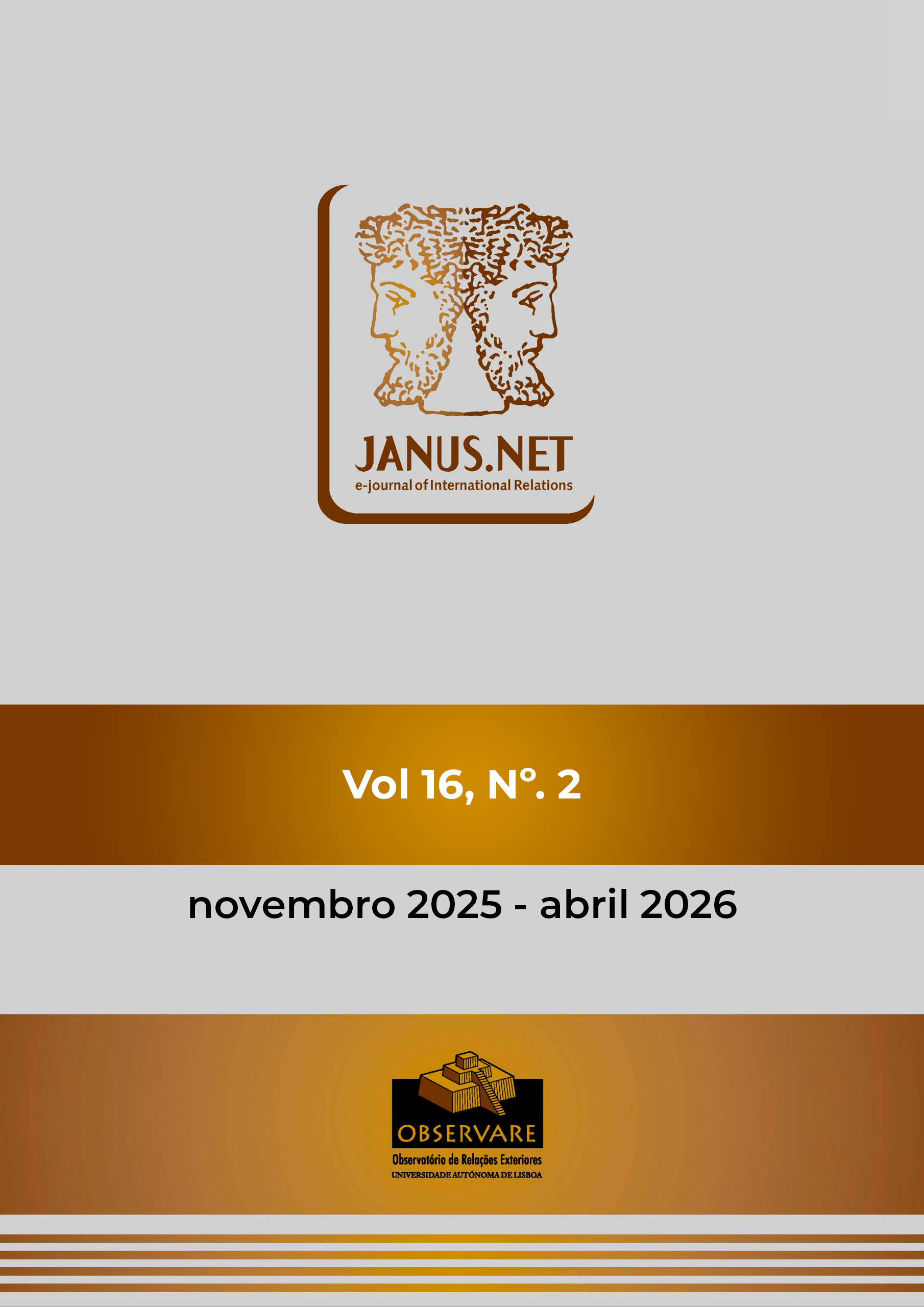EU-NIQUE PERSPECTIVES? ANALYSING CONTRASTING POSITIONS ON THE RUSSO-UKRAINIAN CONFLICT WITHIN THE EU
DOI:
https://doi.org/10.26619/1647-7251.16.2.13Palavras-chave:
União Europeia, conflito russo-ucraniano, Estados-Membros, Comissão Europeia, consensoResumo
Esta investigação analisa as várias posições adotadas pelos Estados-Membros da União Europeia (UE) em resposta ao conflito russo-ucraniano em curso, desde o seu recomeço em 24 de fevereiro de 2022. O estudo baseia-se numa análise do conteúdo de discursos e declarações oficiais divulgados por cada um dos Estados-Membros da UE, nomeadamente a Polónia, devido às suas relações históricas com o Bloco de Leste e à sua notoriedade no acolhimento de refugiados; seguida pela Alemanha e o seu papel fundamental no fornecimento de equipamento militar à Ucrânia; e, por último, a Hungria, devido às declarações públicas controversas do seu primeiro-ministro, Viktor Orbán. A análise é complementada por um exame das orientações mais amplas da política externa desses países que moldam as suas respostas. O objetivo principal é avaliar se a União mantém um consenso coeso sobre o conflito ou se posições divergentes enfraquecem o seu apoio à Ucrânia. Em última análise, através de uma justaposição das opiniões emitidas pela Polónia, Alemanha e Hungria contra a posição geral da UE, concluímos que o apoio da União Europeia à Ucrânia não é tão robusto e coeso como se esperava.


